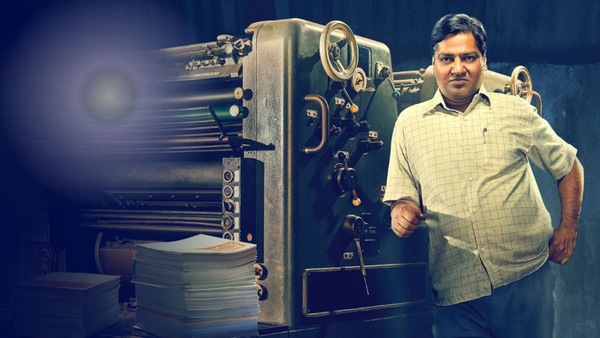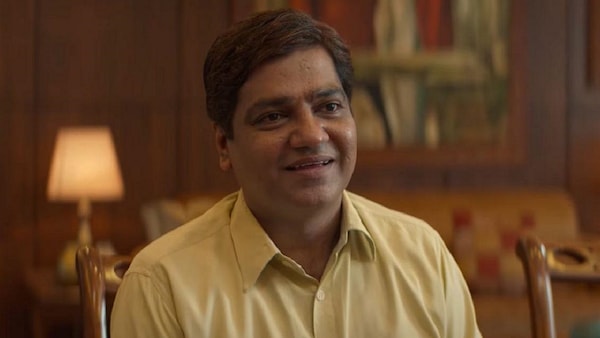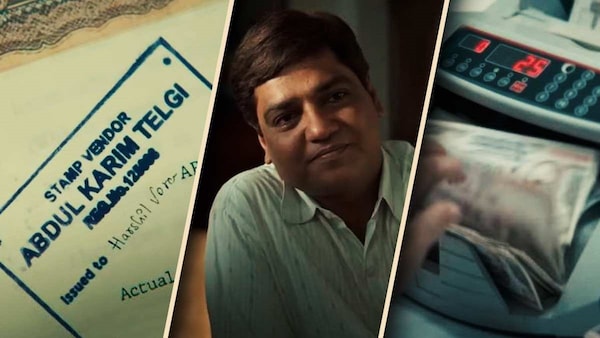Scam 2003: Gagan Dev Riar's Turn As Telgi Could Be Breakthrough Performance Of The Year
This is #CriticalMargin, where Ishita Sengupta gets contemplative over new Hindi films and shows.

Last Updated: 11.16 PM, Sep 01, 2023
THERE is more than one similarity between Hansal Mehta’s Scam 1992 and Scam 2003. Both series outline the meteoric rise and fall of fraudsters. If Scam 1992 (2020) delved into the life of notorious stockbroker Harshad Mehta, its spiritual sequel focusses on stamp paper counterfeiter Abdul Karim Telgi who spearheaded a fraud of Rs 300 crores. But what really ties both the shows together is phenomenal central performances. Pratik Gandhi was astonishing as Mehta, inhabiting the role with unmatched physical and emotional acuity. Gagan Dev Riar as Telgi is in a league of his own.
It helps that the actor bears an uncanny resemblance to the man he is depicting. But even then it is difficult to verbalise the extent of Riar’s craft and commitment to showcasing a personality who forever stationed himself on the other side of law without remorse. It is the little things: the way he lifts his pants, an act that becomes his signature across the five episodes (the remaining five are slated to stream in November), the ease with which his face changes from dejection to arrogance, the calmness with which he approaches people knowing that everything and everyone has a price.
The presence of an actor like Riar reiterates Mehta’s propensity to find success with casting experiments. Much like Gandhi in Scam, Harman Baweja and Jaimini Pathak’s bravura performances in the director’s other work this year, Scoop stand out as formidable examples. Having said that, it is not the only thing he excels in. Few filmmakers have taken to long form storytelling like Mehta. There is an assuredness with which he goes about the format, excavating its merit in the process. Much of it is on display in Scam 2003, a series in which he is the showrunner and not a director.

Adapted from the book Telgi Scam: Ek Reporter ki Diary by Sanjay Singh, the journalist who had broken the story, and newspaper reports, Scam 2003 unfolds as a fascinating profile of a man who insisted on holding on to stilted morals even when the only path he chose to walk on was amorality. The scope of the narrative is immense, charting the rise and fall of Telgi right from when he was a fruit seller at Khanapur in 1982, till he embarked on a downfall.
Directed by Tushar Hiranandani, there is much to like in the first five episodes. There is a deftness with which he depicts the passage of time entwining it with the portrait of a changing nation. Through Telgi’s character we witness an impatient country waiting to find their feet. When we see him for the first time, he is selling fruits in packets made of his graduation certificate. A little later when asked who he is, Telgi promptly replies, “I am the future of the country”.
As the series unravels, technology creeps in the narrative as the totem of time. When Telgi starts off selling fake stamp paper, he holds a pager in his hand. As his business expands and he starts printing stamp paper, the pager is replaced with a mobile phone. These are little details but they hint to a macro change like liberalisation and its micro effects like the growing appetite of the country to match strides with a revolution.

Written by Kiran Yadnyopavit and Karan Vyas (one of the writers in Scam 1992), Scam 2003 also musters social commentary through a subplot of an honest government official ( a terrific Vivek Mishra) who transitions into a cheat after Telgi secures a promotion for him. The shift never becomes too jarring because years of his unrewarded uprightness serves as the context and subtext of the change.
Having said that, it is always tricky to critique a show without watching it in entirety. The story might not change but the treatment might. The narrative might not change but the design might. For instance, if my present grouse with the show is that it keeps glossing over Telgi’s personal life with convenience, the remaining episodes might offer a reason for it. But there is one shortcoming that is easy to reckon with. Harshad Mehta and Telgi had very different journeys but somehow both the Scam(s) go about presenting the protagonists’ arc – of a restively ambitious man who runs so hard that he tires himself – with jaded familiarity. This is a comment on Scam 2003 and not its predecessor.
Much of the way Telgi rises the ranks, displays flamboyance to gain the confidence of others and gets subsequently drunk in power feel too similar to the maker’s depiction of Harshad Mehta’s journey in Scam 1992. It is the grammar of storytelling that feels derivative, too well-known to sustain attention.
All of it again boils down to Riar’s arresting performance. The actor becomes Telgi in a way that has to be seen to be believed. He single handedly owns the series, conveying a lifetime of emotions with just a smirk. If the first five episodes are any proof, then this might be the breakthrough performance of the year.
